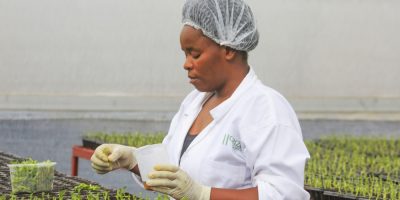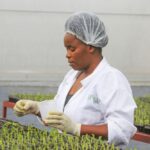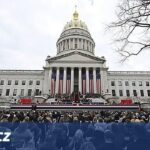2.1K
The admission and enrollment of foreign legal practitioners in South Africa recently came under the judicial spotlight when an advocate who is a Lesotho national challenged certain provisions of the Legal Practice Act which are standing in her way from practising law in South Africa.
Lihaelo Molapo (applicant) turned to the Gauteng High Court, Pretoria, in her bid against the Minister of Justice and the Legal Practice Council (LPC).
The applicant is a foreign legal practitioner and, in terms of existing law, does not qualify to be admitted as a legal practitioner to practice law in South Africa. She contended that the law, as it stands, is unconstitutional and that the previous dispensation regarding the admission of advocates should be “revived”.
In the alternative, she contended that the Minister of Justice should regulate the admission of foreign practitioners in such a fashion that she (and others in her position) be allowed to practice law in South Africa.
She was admitted as an advocate in Lesotho in March last year. Although she is still a citizen of that country, she is currently living in Pretoria.
Molapo turned to court after the LPC refused her admission as a legal practitioner here. When the Legal Practice Act came into force in 2018, some of the provisions that would have allowed her to practice here were repealed.
In terms of section 24(2) of the Legal Practitioners Act, admission to practice as a legal practitioner – including those who want to be enrolled as advocates – is restricted to South African citizens or permanent residents here.
This restriction on foreign nationals was found during a previous full court (three judges) judgment to be constitutionally compliant.
The applicant argued that she and others in her position had a right to be admitted to practice law in South Africa as the Act previously stood, but that this had been “taken away” by its repeal.
She argued that such a right could be “revived” in terms of the LPA and that the law, as it now stands, cannot be used to limit her rights.
As an alternative, the applicant contended that the minister is under a constitutional duty to make regulations that would provide for her admission and that the Minister of Trade and Industry is equally obliged.
In addition, she accused the LPC of being “… complicit in the obstruction and deprivation of my rights …”
The full court in the earlier matter related to foreign nationals explained that all those who had acquired rights in terms of the LPA provisions prior to its repeal retained those rights and were entitled to enforce or exercise them, despite the repeal of that Act.
This meant that had the applicant been admitted as an advocate in the Kingdom of Lesotho before November 1, 2018, she would, in the same manner as those South Africans who had obtained LLB degrees before that date, have been entitled to apply to be enrolled after that date in terms of the LPA.
“The simple fact of the matter is that the applicant had not yet acquired such rights. She was only admitted as an advocate on March 20, 2023, after having completed her practical vocational training,” Judge Davis said.
He explained that the retention provision and the transitional or continued right created by section 115 of the LPA did not extend to rights that had not yet been in existence on November 1, 2018.
“The applicant’s argument that the LPA had ‘taken away’ some of her rights is therefore unsustainable. At the time, the LPA had come into operation, the applicant had no accrued rights,” the judge said.
He added that the applicant’s alternative argument, that the repealed provisions that provided for the admission of foreign advocates from designated countries should be kept “alive” so that they can still be admitted here, “flies directly in the face of parliamentary sovereignty”.
“To demand that a court deems the provisions of an act of parliament still applicable when parliament has expressly repealed those provisions would amount to law-making way beyond the separation of powers principle,” Judge Davis said.















